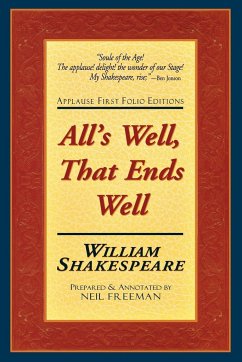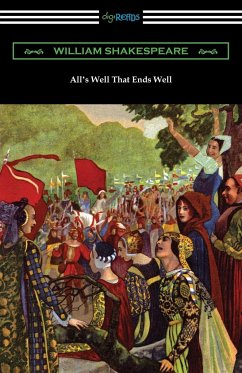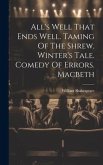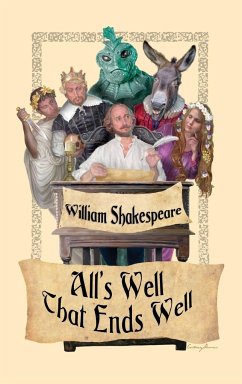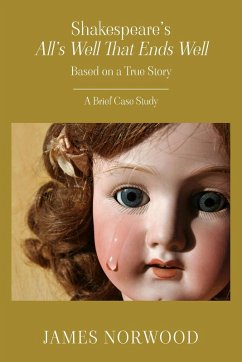The First Folio of 1623 was prepared for print by two members of Shakespeare's acting troupe -- John Hemings and Henry Condell -- which included comic actor Will Kemp and the great tragedian Richard Burbage. In a fascinating and detailed introduction, Freeman points out that because Shakespeare and his colleagues wrote from a rhetorical tradition -- a society where the emphasis was on the spoken word -- he wrote with an eye to how he wanted his plays performed, giving as much direction as possible to his actors. Freeman looks at what is known of the printing of that First Folio and analyzes the variations between the First Folio, later Folios, Quarto editions (where available) and modern editions of the plays. He examines the "corrections" made by editors over the centuries that have shaped the way we perceive Shakespeare today -- from the regularization of verse, to the changes from prose to verse (and vice versa) and the standardization of character prefixes.
If there ever has been a groundbreaking edition that likewise returns the reader to the original Shakespeare text, it will be the Applause Folio Texts. If there has ever been an accessible version of the Folio, it is this edition, set for the first time in modern fonts. The Folio is the source of all other editions. The Folio text forces us to re-examine the assumptions and prejudices which have encumbered over four hundred years of scholarship and performance. Notes refer the reader to subsequent editorial interventions, and offer the reader a multiplicity of interpretations. Notes also advise the reader on variations between Folios and Quartos. The heavy mascara of four centuries of Shakespearean glossing has by now glossed over the original countenance of Shakespeare's work. While other complete Folio editions continue to trade simply on the facsimile appearance of the Elizabethan "look " none of them is easily and practically utilized in general Shakespeare studies or performances.
Hinweis: Dieser Artikel kann nur an eine deutsche Lieferadresse ausgeliefert werden.
If there ever has been a groundbreaking edition that likewise returns the reader to the original Shakespeare text, it will be the Applause Folio Texts. If there has ever been an accessible version of the Folio, it is this edition, set for the first time in modern fonts. The Folio is the source of all other editions. The Folio text forces us to re-examine the assumptions and prejudices which have encumbered over four hundred years of scholarship and performance. Notes refer the reader to subsequent editorial interventions, and offer the reader a multiplicity of interpretations. Notes also advise the reader on variations between Folios and Quartos. The heavy mascara of four centuries of Shakespearean glossing has by now glossed over the original countenance of Shakespeare's work. While other complete Folio editions continue to trade simply on the facsimile appearance of the Elizabethan "look " none of them is easily and practically utilized in general Shakespeare studies or performances.
Hinweis: Dieser Artikel kann nur an eine deutsche Lieferadresse ausgeliefert werden.

